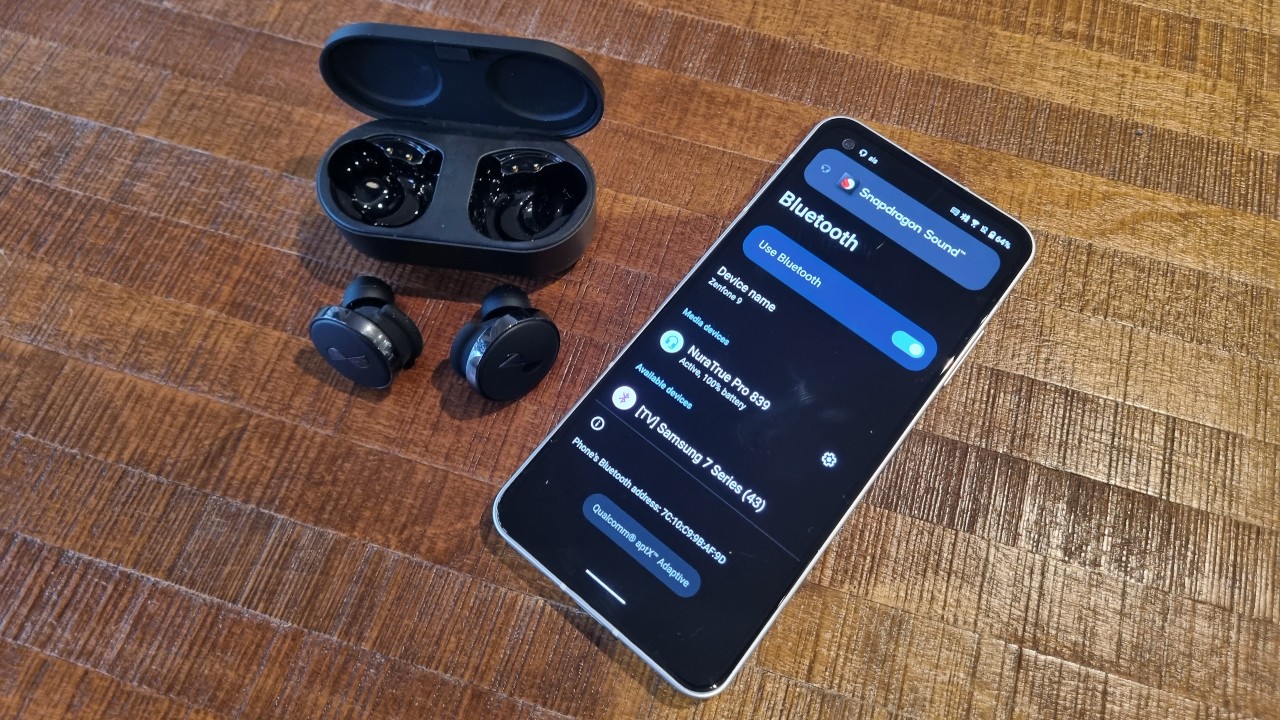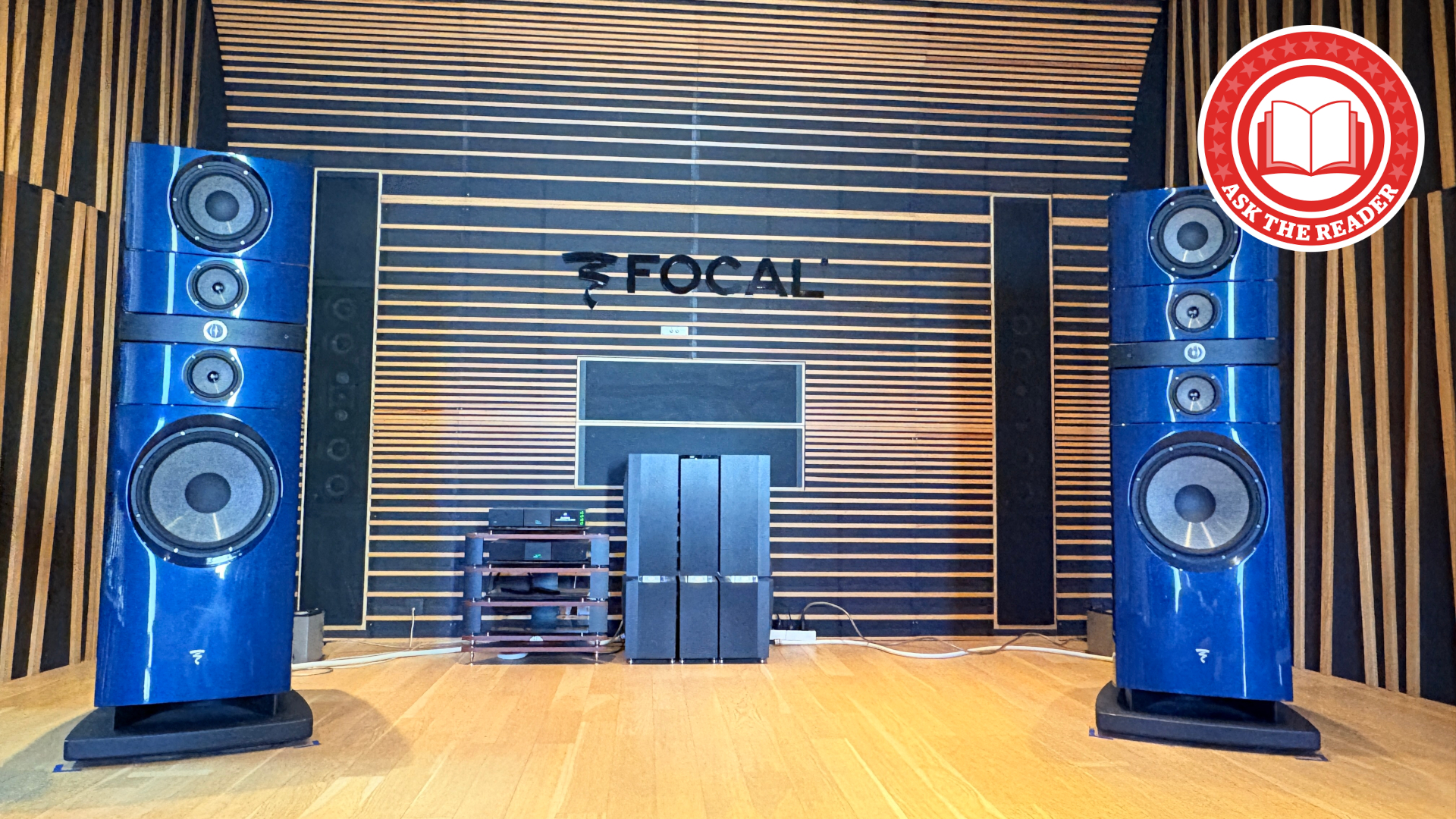aptX Lossless: what is the breakthrough Bluetooth codec? How can you get it?
You can now stream CD-quality audio losslessly over Bluetooth, if you have the right kit

aptX Lossless is two things really: it is the first and only Bluetooth codec capable of losslessly (that's important) streaming CD-quality audio, and it is part of a package of Qualcomm audio technologies called Snapdragon Sound that will feature in a number of next year's Android phones and wireless earbuds and speakers.
aptX Lossless was announced in September 2021 and is just starting to appear in the first trickle of devices, with more expected in 2023.
So, what's so good about aptX Lossless? How can you hear it? And what devices are compatible? Let's get to it...
What is aptX Lossless?
While Qualcomm's aptX Bluetooth codecs (aptX, aptX HD and aptX Adaptive, to list them in chronological and capability order) are among the better-sounding methods in which we listen to music over Bluetooth, alongside the likes of Sony's LDAC and Apple's ALAC, the latest aptX Lossless is the first codec that is claimed to transmit CD-quality (or 'lossless') music losslessly, without using a compression method that degrades sound quality. Other Bluetooth codecs 'support' CD-quality and even hi-res audio, but they compress it lossily during transmission in a way that detrimentally affects sound quality. The compression inherent in transmitting audio over Bluetooth has become more efficient over the years, and aptX Lossless is, on paper, a culmination of Qualcomm's progress in this arena so far.
Qualcomm told What Hi-Fi? that CD-quality (16-bit/44.1kHz) audio transmission is achieved between 1.1Mbps and 1.2Mbps (1,100 and 1,200kbps) with aptX Lossless. As a rough reference, aptX Adaptive's maximum bitrate is 420kbps, (the older and less efficient) aptX HD can stream at 576kbps, and LDAC's is 990kbps. A CD audio file is 1,411kbps so you're always losing something here, though these claimed aptX Lossless figures are very close. Qualcomm says that 'no data is lost when audio is encoded and decoded with aptX Lossless'.
The codecs need to dynamically scale the bitrate to adapt to and accommodate busier radio environments without audio reducing in quality or, worse, cutting out, so these maximum bitrates are typically rarely met. Qualcomm says it has had to build a bigger radio data pipe in order to sustain that higher bitrate, though in "challenging" situations it can "back off smoothly".
"It works. We've done it in our office in China – a regular Chinese office where there's lots of wi-fi. We stood 10m away from the phone and it was holding it up," said James Chapman, Qualcomm's vice president and general manager, Voice, Music and Wearables.
With Snapdragon Gen 2 chips supporting Low Energy (LE) Audio, future devices using them will actually transmit losslessly over 48kHz, though this (in absolute terms, modest) jump from 44.1kHz won't likely translate to significant audible improvements.
The latest hi-fi, home cinema and tech news, reviews, buying advice and deals, direct to your inbox.
"Bluetooth is always adapting. People are still trying to build it. We aren't done yet," says Chapman, who hinted that the 48kHz bitrate limit that can be passed through losslessly on the new chips/platforms could inch up higher in the following months.
What devices support aptX Lossless?
aptX Lossless is part of Qualcomm's Snapdragon Sound platform, which is available on phones, headphones and speakers that use the company's Snapdragon 8 Gen 1 phone chip and S3 and S5 audio chips, and will be available on 2023 and beyond devices boasting the just-announced Gen 2 versions of those chips. Examples of gen-one devices on the market now are the ASUS Zenfone 9 phone and Nura NuraTrue Pro wireless earbuds (pictured) – which we experienced aptX Lossless with recently.
There aren't many aptX Lossless-supporting devices out right now, though, and as it is an end-to-end solution, both your phone and headphones need to support it for you to benefit from it fully – just as you need an LDAC-supporting phone and LDAC-supporting headphones to stream music over the LDAC Bluetooth codec.
That means you aren't likely to have experienced aptX Lossless yet.
Next year could be a different story as more devices come to market, though these evolutions often take two to three years to become meaningfully prevalent on the consumer-facing hardware side. Qualcomm says it doesn't have plans to license out aptX Lossless separately to Snapdragon Sound.
What other features will aptX Lossless devices have?
Because aptX Lossless is being sold as part of a package, future supporting devices will likely support other Snapdragon Sound audio technologies too. One of these is dynamic spatial audio, which offers a 360-degree soundscape into which effects are placed, and which can ‘track’ and adapt the soundfield as you move your head. Similar to how Apple's spatial audio works between compatible iOS devices and AirPods.
Those phones and headphones released with Qualcomm's new S2 chips will support the LE Audio Bluetooth standard (Gen 1 supports only Classic Bluetooth), too – the 'next big thing' from the Bluetooth SIG (Special Interest Group) that promises more efficient, low-power transmission. This comes with Auracast, which will enable owners of compatible headphones to zone into a choice of channels that are being broadcast by, say, multiple screens showing different content in a bar or airport.
Qualcomm has also reduced Bluetooth latency by roughly 50 per cent to 48 milliseconds so that the time between seeing the gaming action on your (compatible) phone and hearing it through your (compatible) earbuds will be effectively unnoticeable.
And lastly, active noise cancellation is getting a facelift to enhance wind noise suppression and make for a more natural ANC effect.
MORE:
I tried aptX Lossless Bluetooth – and yes, we can all look forward to it (with caution)
Lossless is coming to Spotify! All you need to know about Spotify HiFi
Hi-res music streaming services compared: which should you sign up for?
Dynamic spatial audio is coming to Android phones for more immersive gaming and movie watching

Becky is a hi-fi, AV and technology journalist, formerly the Managing Editor at What Hi-Fi? and Editor of Australian Hi-Fi and Audio Esoterica magazines. With over twelve years of journalism experience in the hi-fi industry, she has reviewed all manner of audio gear, from budget amplifiers to high-end speakers, and particularly specialises in headphones and head-fi devices.
In her spare time, Becky can often be found running, watching Liverpool FC and horror movies, and hunting for gluten-free cake.
